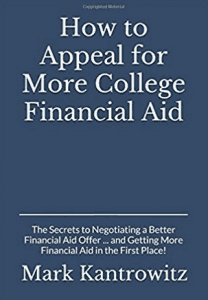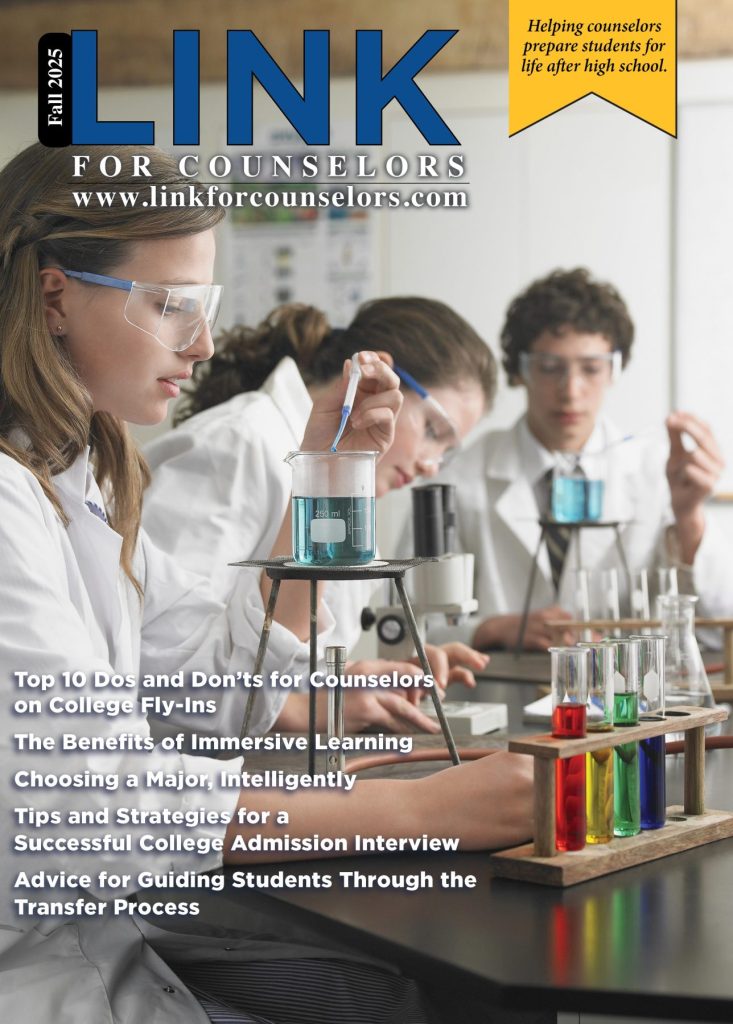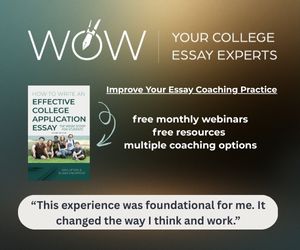It is tough to get into college these
days. With stiff competition from thousands of applicants, one place to
set yourself apart is during your interview. Not all colleges require
(or even offer) an interview component to their application process, but
many do, so check the school’s website or contact the admission office to find out if interviews are offered and how to schedule one. Interviews may be conducted by an admissions officer or a representative of the school, such as a current student or a graduate,
who has agreed to help interview candidates to see if they are a good
fit for the school. Interviews may be conducted in person or by phone or
video.
There are literally hundreds of interview questions that colleges might ask of their applicants. It is impossible to prepare for all the questions you might face, but it is easy to practice and prepare for some of the most common ones.
There is actually a lot of psychology that goes into the types of
questions admission officers ask and what they are looking for in your
responses. Remember that what you say is sometimes just as important as
what you don’t say, and your body language speaks to the audience as
well. By knowing the types of questions admission boards may ask you and understanding what they are really
looking for when they ask these questions (or any number of their
variants), you can be prepared with some solid and impressive answers to
wow your interviewer!
General Interview Tips:
- Don’t be nervous.
Yeah, yeah, easier said than done. And admissions officers or their
representatives understand that nerves are natural and to be expected.
But try to keep them under control. Take deep breaths, maintain eye
contact, and try to stay calm. Remember that questions don’t need an
immediate answer – it’s okay to pause (briefly), gather your thoughts,
and formulate an answer. If you don’t understand the question or aren’t
sure what they are looking for in your answer, ask for clarification or
for them to reword the question, or repeat it in your own words to make
sure you’ve understood what they are asking.
- It’s a conversation, not an audition – really!
The purpose of the interview in a college application is twofold: It
allows the admissions officer an opportunity to get to know who you are
and to gauge whether you will be a good fit for their school, but it is
also an opportunity for you to ensure that the school will meet your
needs and expectations. If you go in with a “script” and are playing a
part you think
will impress them, the interview will come across as stiff, and they
may misunderstand or misread the real you. Really listen to what the
interviewer is asking, give yourself a moment to compose yourself and
your answer, and then give it your best and most honest response.
Definitely, have some talking points tucked away, but don’t be afraid to
answer “off the cuff” with whatever comes to mind at the time –
filtered for audience and purpose, of course. It’s also okay to admit
you don’t know or aren’t sure but talk through your reasoning a little
bit so they can see your thought process at work.
- Honesty is the best policy.
Being honest is the best way to be impressive – don’t tell the panel
what you think they want to hear. Speak the truth, from your heart, to
ensure that the panel gets to understand the “real” you and can assess
how you will fit in on their campus and can appreciate the contributions
you can make to their campus community. Be creative and show your
personality, but don’t lie or pretend to be someone you’re really not.
- Ask questions of your questioner.
One of the easiest ways to show a school’s representative that you are
interested in attending is by having a few questions prepared that you
can ask at the end of your interview. They will usually conclude by
asking if you have any questions, and it’s a good idea to have one or
two to show that you have done your research on this school and you are
eager to learn more about specific aspects of it. Don’t ask questions
where the answers could be found easily on the school’s website; but if
something comes up in the interview that you want to ask a follow-up
question about or you have a question where the answer will give you
valuable information to help you make your decision, ask it!
Whatever You Do, DON’T:
- Show
up late, unprepared, or without having done your research on the
school. You are not doing them a favor by participating in this
interview, so be sure to be respectful and attentive. Put your cell
phone away (after making sure it’s on Do Not Disturb) and shake hands
firmly while making eye contact with the interviewer.
- Forget
your audience. While you want to try to keep to a natural conversation
tone and tempo, this interviewer is not your friend and you’re not
hanging out over coffee. Dress appropriately and use elevated (but
natural) vocabulary – no slang and avoid fillers (“um”, “like”, “you
know”, etc.). Keep it natural and try not to sound rehearsed.
- Be too shy
or too boastful. It’s Important to try to find the middle ground –
share about yourself, who you are, and what has brought you to this
point in your life, but show humility. Admit to your failures or
short-comings and focus on explaining what you learned as a result of
those experiences.
TOP 12 INTERVIEW QUESTIONS AND WHAT THEY’RE REALLY ASKING:
***
1. Tell us something about yourself
2. What adjectives best describe you?
3. How do you plan to get involved in our campus community?
4. How do you spend your time when you are not in school?
5. What are your academic strengths and weaknesses?
6. Describe an obstacle you have faced
7. What is your opinion on [topic]?
8. What book would you recommend everyone should read?
9. Who in your life has been most influential on you, and why?
10. What do you hope to gain from attending this college or university?
11. What experiences have you had with people who are different from you?
12. Do you have any questions for us?
***
Question 1: Tell us something about yourself.
What they’re looking for:
Often couched as more of a request or statement rather than a question, what the representative is looking for is to get a general understanding of who you are and what you’re all about.
How to answer:
This question does NOT mean start
with your birth and chronologically account for every major milestone in
your life, from learning to walk to your high school graduation.
Instead, give a succinct explanation of who you are and what you potentially have to offer the school. What makes you special or a stand out among the other applicants? Why would this school be proud to call you an alumnus after you graduate? They know your age, hometown, grades, etc. from your application, so try to give information or details not included in the paperwork part.
In answering this question, it can feel like you are rambling, so be
sure to practice this one ahead of time so that it is telling, without
all of the details, and gives an accurate representation of who you are
and why you are important without boasting.
Question 2: What adjectives best describe you? Or How would your best friend describe you?
What they’re looking for:
This question might include a set number (What 3 adjectives best describe you? Or What adjective would your best friend use to describe you?) Pay attention if they give you a specific number – they want to make sure that you are really listening and paying attention, in addition to seeing how you assess yourself. It is a test of both your humility and your creativity, so try to avoid general adjectives (nice, funny, smart), and pick some that really capture the essence of you.
How to answer:
Bragging can be the worst! We’ve all been told not to do it, to be humble, but this is your opportunity to balance humility with some creative adjectives that give a sense of who you really are and what is important to you.
Really spend some time on this one, brainstorming specific and creative
adjectives to describe you and your personality. If possible, provide
justification for why you’ve chosen the ones you have.
“I would say one adjective that describes
me is determined. Although my determination can sometimes come across
as ‘pushy’, I am goal-oriented and I feel most satisfied when I achieve
what I have set out to do, so I am willing to work hard and encourage
those around me to work hard, too, so that we can achieve a goal
together.”
Sometimes the way the question is
asked will allow you to justify and explain your answers. Though if you
get the sense that the interviewer just wants a list of 5 adjectives,
give them the list of 5 adjectives and wait to see if they ask follow-up
questions or seek more details.
Question 3: How do you plan to get involved in our campus community?
What they’re looking for:
Schools want to know that you have
something to offer them for everything they’re going to offer you. It’s
students who make campus life engaging, inviting, and inclusive, so they
want to know how you are going to engage with the community around you and help to make positive contributions to the school and campus,
not just sit in your dorm room all the time. It’s also a test of your
personality (what do you like to do in your free time) and whether or
not you have researched the school and can mention or inquire more about
certain activities or opportunities.
How to answer:
This is a great opportunity for you
to talk about bridging your activities from high school to the
opportunities this college or university provides on campus. They give
insight into your values and passions and show that you enjoy being a part of a community.
“I was really involved in our
International Club at my high school, and I saw on your website that you
have several Cultural Houses as part of your campus life. I would like
to learn more about those.”
“I volunteer helping elementary school
students with their homework after school. I’d like to continue serving
the community by finding some volunteer opportunities at your school.”
The idea is to show that you want to
be engaged and interact with the campus community, but college is also a
great time to try new things! So you might want to mention some clubs
or organizations associated with the school that you think would be
interesting to check out and learn more about. A great follow-up
question to your interviewer is to inquire about any sort of Club Rush
or Club Fair the school offers (they usually happen in the fall), where
the school’s different clubs and organizations showcase what they do and
look for new recruits for their program. You want to give the sense
that you will be actively participating and will make their school even
better with your contributions.
Question 4: How do you spend your time when you’re not in school? Or, If you had an afternoon to spend any way you’d like, what would you do with the time and why? Or, What do you like to do for fun?
What they’re looking for:
As suspect as it might sound, this
is not a “gotcha” question where the representative is looking for a
“right” answer. Instead, your honest response gives a sense of your
values, passions, and hobbies, and indicates your ability to create balance in your life.
They’re wanting to hear, honestly, what matters to you and how you
spend your “off” time in a meaningful or fulfilling way. This is an
especially important question to answer genuinely and not just with the
answer you think they want to hear.
How to answer:
This is not a trick question. Though you probably don’t want to discuss the weekend parties you enjoy attending,
this is an opportunity to share some of your passions or activities
that are important to you and to indicate what gives your life a sense
of meaning and value. Are you involved in family, community, or society in a meaningful way?
If you had an entire afternoon free, would you spend it on social media
or lost in cyberspace somewhere? Would you cloister yourself away in
your room playing video games? Would you offer to mow the neighbor’s
lawn? Take your dog for a walk? Ideally, your answer to this question presents a balanced person who is able to appreciate doing for others but also realizes the importance of focusing and rebalancing the self.
But if you’re not into yoga on the beach or sitting cross-legged in
deep meditation, explain how playing those video games relaxes you or
how hours spent on social media helps you feel engaged with people you
may not get to see in person very often, and therefore why you value
those types of activities.
Question 5: What are your academic strengths and weaknesses? Or, How do you learn best?
What they’re looking for:
Also not a trick question, this inquiry allows the representative to get a sense of your level of self-awareness when it comes to your academic strengths and weaknesses or your learning style.
They want to make sure that your strengths will be an asset to the
school and that your weaknesses are areas in which they can provide
support and work with you to strengthen based on your identification of
them and willingness to work through them.
How to answer:
This can be a tricky question
because it’s sometimes hard to brag about what we do well or to admit to
where we struggle. But this is a great question if there are any
anomalies in your transcript or anything in the academic portion of your
application that you feel you need to explain to the representative.
For example, if you failed Spanish in high school and only earned a C
the second time around, you might explain that one of your weaknesses is
language acquisition – you have discovered that learning a language is a
challenge for you because of the auditory processing it requires, but
your strength in acing all of your science classes, including AP
Biology, comes as a result of your hands-on learning style.
Being able to conduct lab experiments
and having that hands-on interaction with the material helped you learn
and understand it better. Academic strengths and weaknesses can go
beyond the particular subject. For example, you may be very
organized, so strength is that you never lose an assignment or forget to
turn anything in because you keep good track of your work, but you are a
procrastinator so that work is often being done last minute, which
sometimes results in less than your best.
Be sure not only to
acknowledge your weaknesses but also to acknowledge your awareness of
them and the coping skills you apply to counter their negative effects.
“I am a procrastinator, but I am working
on improving that by using calendar reminders on my phone to remind me
about upcoming deadlines so I can start on the task before the last
minute.”
Question 6: Tell us about a time when you
didn’t get what you wanted or when things didn’t go your way. How did
you respond to that experience? Or, Describe an obstacle you have faced. How did you overcome the challenge that it presented?
What they’re looking for:
There’s so much psychology in this question. How easily do you admit to mistakes? What kind of mistakes do you choose to admit to? How thoroughly do you explain the impact of the mistake and its long-lasting effect?
Remembering when you didn’t get the color balloons you wanted for your
six-year-old birthday party may have bummed you out at the time, but why
are you still holding onto that disappointment? How do you relate it to current disappointments? Your answer to this question speaks to your resiliency, your ability to recognize an obstacle as such, and your capacity to process that obstacle and figure out alternative approaches to the problem.
There is a lot of self-reflection associated with this question: How
easily do you admit to not getting your way or facing an obstacle? Your
answer indicates how well you problem solve and deal with frustration or
disappointment.
How to answer:
This one’s a tough one. Not
only do most people have an awful lot of examples to choose from, but
how do you determine the “right” one to share? The right one is the one
that sticks with you to this day. It is the experience that you remember
and use as inspiration to push you through current tough times. We face
obstacles every day, but how we approach them today comes as a result
of what we’ve learned from the past. It’s okay to choose an
example where you didn’t handle the disappointment or obstacle well at
the time, but with continued self-reflection and some maturation, you
realize you would handle things differently today. Remember that in any of these “Tell us about…” questions, you want to keep your story-telling succinct.
They need enough details to appreciate the situation, but not so many
that your story is long and drawn-out. This is another good question
type to practice ahead of time and pass by some people to get feedback
about whether it seemed rambling or if it lacked details that would help
explain the impact.
Question 7: What is your opinion on [insert any debatably current event or topic here]?
What they’re looking for:
This question assesses your level of global citizenship.
While you may not need to know all the details about Greece’s banking
system and why their debt-crisis is critical to all of Europe, it is a
good idea to know something about something so that it doesn’t seem like
you’ve been living under a rock or are so caught up in your own world
that you lose sight of the big picture. Representatives are looking to
see how much you know about the world around you and how knowledgeable you are about current events. Your opinion also gives insight into your values and perceptions of the world.
How to answer:
Don’t be shocked or alarmed by this question, prepare for it by doing some reading online or watching some news broadcasts ahead
of your interview to get a sense of some of the challenging debates
taking place across the nation and around the world. You may not have
the answers
to the problem they ask about but show that you have heard of it, have a
basic understanding of it, or have considered it enough to have some
questions about it (“So I have heard of xyz, and I don’t understand
how…”). An opinion is just that – there’s no right or wrong answer, but they are looking to see what topic you pick to discuss, which side of the argument you seem to be on, and how you approach the problem.
If worse comes to worse and you really have no idea what they are
talking about, it’s okay to say, “I’m not sure,” or “I’m not familiar
with that issue,” but chances are they will ask your opinion about a
topic that is broad enough that you should have some knowledge and some
opinion about it. As this is an opinion and it may be about a sensitive
topic, be aware of any bias or prejudice that may be present in your
response and practice ahead of time so that your opinion uses neutral,
non-stereotypical, and non-prejudicial language.
Question 8: What book would you recommend everyone should read?
What they’re looking for:
First, are you literate? Second, the answer to this question also speaks to your interests and what you find important or valuable in life.
People recommend books because they feel somehow connected to text, its
story, its characters, or its theme. Representatives are interested in
hearing what kind of writing you’re connecting with and what important
message you found that resonates with you.
How to answer:
Chances are (hopefully!) that you
have a wide range of texts from which to choose an answer. Some people
like to get nostalgic and select a book from their childhood that taught
them a valuable lesson or cemented their love for reading, or was just
the right book at the right time. Others select a book from their high
school years, something they’ve read more recently or studied more
in-depth with class discussion and analytical assignments. Still others
select a text they may have read on their own, such as an independent
reading book. Regardless of your selection, select with a purpose. WHY
should everyone read this book? WHY is it important? What lesson(s) does
it have to offer? Have you applied that lesson to your own life in any
way? With what results? Consider, also, the question – what book should everyone read? Which means you need to select a book that most people can relate to on some level and not one that most won’t be able to relate to or find meaning in.
Question 9: Who in your life has been most influential on you, and why? Or, Tell
me about an influential person in your life. How has this person
influenced you and what have you taken away from your interactions with
him or her?
What they’re looking for:
George Washington is credited with
sharing the idea that “It is better to be alone than in bad company,”
and the idea that you are only as good as the company you keep means
that the people you look to for guidance or inspiration says a lot about
who you are. This question seeks to determine what kinds of people you
associate with and look up to as role models or sources for inspiration.
How to answer:
Your choice may be personal, like a
grandmother, coach, piano teacher, or someone no one else has
necessarily heard of; or, you may pick a more well-known source of
inspiration, like a famous musician, artist, or politician. No matter
who you pick, make sure you have a succinct story to tell about how this person has affected you in a positive way. While people tend to select influential people based on the positive things those individuals have modeled in their own life, it is possible to choose bad influences to talk about what you have learned about life from these people and their struggles and how they inspire you to be or achieve more than they have.
Think about the justification for why you select an individual to be
your “most influential” person. It doesn’t have to be someone you know
personally or be someone you’ve spent much time with, as long as they
have left some kind of lasting impact on you for the better.
Question 10: What do you hope to gain from attending this college or university?
What they’re looking for:
Understanding what your motivation
and expectations are with regard to college or university help admission
officers determine whether or not their school will meet your
expectations and whether you would be a good fit. They may also be
looking to see if you have formulated clear goals for yourself, both short-term and long-term, to be sure that you’re attending college for all of the “right” reasons.
How to answer:
Although the answer might boil down
to “I want to get a good job, make a lot of money, and live a
comfortable life,” this question requires both short-term and long-term
consideration. In the short-term, you are about to spend at least four
years of your life at this school and in this community. Why do you want
to be there? How do you envision the next four to six years of your
life? What role does this school play in that vision? Then expand to
long-term and the knowledge and learning you hope to gain that will
serve you for a lifetime. Also, some people aren’t really sure why
they’re headed off to college, other than that’s just the expectation
of the next step placed on them by family or society. So really think
about his one before you answer. What are YOU hoping to gain from this experience? What does THIS school have to offer you that another college or university doesn’t? Why would you be a good fit here? It’s a valid question and needs an honest, thoughtful answer.
Question 11: What experiences have you had with people who are different from you?
What they’re looking for:
College is a melting pot of all
different people from all different backgrounds. Admission officers want
to know your experience with diversity and assess your interactions
with others. College can be an opportunity to experience and learn about
different people and cultures and your prior experiences with doing so
may speak to the success you’ll have in acclimating to college life.
How to answer:
We’ve all been there – in a situation
with someone who is different from ourselves, wondering how to
interact, what common ground may be found. Sometimes these interactions
are brief and inconsequential, but sometimes they shape who we are and
how we view the world. Your answer to this question explains your level of acceptance when differences are easier to identify than similarities.
As you prepare for this question, think about several of these
experiences and consider: was the experience positive or negative? Were
you the “instigator” or the “victim” in the experience? What did you
learn as a result of the interaction? Your answers to these kinds of
sub-questions help the admission officer determine your probable success
as part of a diverse campus and what you will do to help bring people
together in a spirit of understanding.
Question 12: Do you have any questions for us?
What they’re looking for:
Interviewers generally end the session with this generic question. Don’t ever answer, “No, I’m good, thanks.” Having questions to ask in return shows that you are thoughtfully engaged in this school selection process.
You are inquisitive and eager to learn more. Your questions also allow
them to assess the research you’ve already done about their school and
the seriousness with which you are approaching this decision.
How to answer:
The answer to this question should always be an enthusiastic “YES!” followed by a thoughtful question or two that will provide you information that will help solidify your selection of this school as the perfect place for you. Don’t pepper the interviewer with 30 different questions, but have two or three to ask, understanding that there may not be time for the representative to answer a lot of questions from you. Make sure the questions you ask are not basic information questions that you could find the answers to online. The best questions to ask are ones you have formed as a result of the conversation you’ve just had. Questions that follow-up to comments made during your interview show that you were paying attention and are already reflecting back on the experience. At the very least, have a few questions prepared to ask about campus life or academics. If you are concerned about anything, ask a question about it. For example, you may ask about student support for incoming freshmen – are there counselors to talk with, is tutoring available if you feel like you’re struggling? Questions like these indicate you are interested in your success and are already envisioning yourself as part of their school family.
This post provided by USA Test Prep. Check them out at : https://www.usatestprep.com/home
















